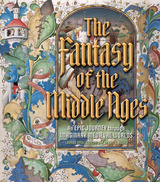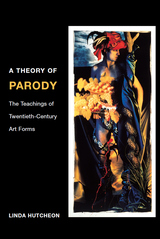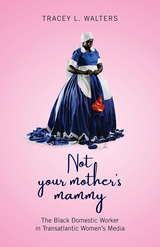“At its core, Insurgent Aesthetics reminds us that war and security are—despite the modern ideologies that would declare otherwise—fundamentally racialized social practices that seek to manage their violence in everyday life through controlling what can be felt and known. By looking at the ways diasporic communities interfere with sovereign and statist logics that conserve the knowledge of loss for the national community alone, this exquisitely written book powerfully argues for the insurgent abilities of culture to interrupt, deform, and repopulate our felt and known worlds in ways that force a reckoning and connection with the racialized death and detritus that US security at once creates and tries to disappear.”
-- Chandan Reddy, author of Freedom with Violence: Race, Sexuality, and the U.S. State
“With its sharp interrogation of US warfare, settler colonialism, and racial capitalism, Insurgent Aesthetics introduces ‘queer calculus’ as an analytic that focuses on the racial violences of US empire and its forever war. By attending to the sensuous, and to the creative praxis and interventions of Arab, Muslim, and South Asian diasporic artists, Insurgent Aesthetics is a powerful, queer feminist study of life under US empire. Importantly, Ronak K. Kapadia demonstrates how insurgent strategies of solidarity and rebellion can trouble empire's methodologies and move us toward freedom.”
-- Simone Browne, author of Dark Matters: On the Surveillance of Blackness
“ Insurgent Aesthetics is a theoretically-rich piece of cultural studies. … The book offers a powerful reading of art inspired by, and produced during, the post-9/11 era of US military aggression and colonization.”
-- Brian Donovan Ethnic and Racial Studies
“There is much to be learned from Kapadia, whose ambitious monograph traffics between a profound appreciation for the ramifications of US imperialism, an eye for congruencies between divergent strains of comparative ethnic studies, and an enthusiasm for the critical talents of minoritarian cultural production.”
-- Eric Vazquez Lateral
"Fascinating and innovative.... Kapadia’s book is beautifully constructed not only intellectually in the breadth and depth of its analyses but also physically: it is richly illustrated with many of the artistic works that he discusses, a number in full-colour plates.... What is perhaps most important about the book is its insistence that art does not only offer critical perspectives on surveillance and securitization but also brings out the extent to which surveillance practices are themselves inextricably grounded in visual and aesthetic practices."
-- Robert Heynen Surveillance & Society
"Insurgent Aesthetics’s argument about the violence of visuality and the capacity of artists to rethink the aesthetics of warfare track through the entire book; however, each chapter and all the art objects feel fresh and different from the previous. The arguments are sustained also by the inclusion of many colour images from each artist discussed. The book belongs in visual, art, media and performance studies classrooms, as much as in social science contexts studying globalisation, war and imperialism."
-- Kareem Khubchandani Bioscope
"Insurgent Aesthetics is a dazzling contribution to a number of fields. . . . It is a model of scholarly composition, depth and breadth, grace and nuance. It would also be a welcome model for students and scholars across the humanities for its organization, style, substance, analysis, and beauty. But more importantly, Kapadia’s queer calculus is a methodology that can help ensure we don’t become numb from the gas that now governs so much of the world and shows us that our tears may lead to some, new unknown place of collective freedom for all."
-- Stephen Dillon Cultural Studies
“Kapadia has done profound justice to the cultural workers that he features—and his book is a welcome contribution to knowledge production and a living example of what true intersectional scholarship looks like.... Insurgent Aesthetics is itself aesthetically breathtakingly beautiful as a text—and insurgent.”
-- Sa'ed Atshan Arab Studies Quarterly
“As Kapadia points out, many of the artists whose works he explores do not have the kind of mainstream recognition they should have in the international art world. [H]is careful reading of the artists’ works is a model for how an art critic can (and should) write about works by artists with complex genealogies.”
-- Alpesh Kantilal Patel GLQ
"The immensely generative and imaginative work by Ronak Kapadia in Insurgent Aesthetics is of great value for those working within and at the inter- sections of numerous fields; artists of colour will particularly benefit from Kapadia’s expansive readings and theories of contemporary conceptual, performance, and visual art by an essential set of Arab, Muslim, and South Asian diasporic artists and cultural workers."
-- Balbir Singh Asian Diasporic Visual Cultures and the Americas



























